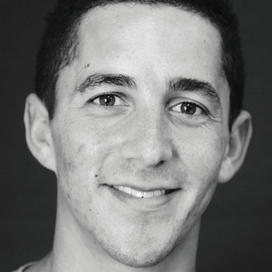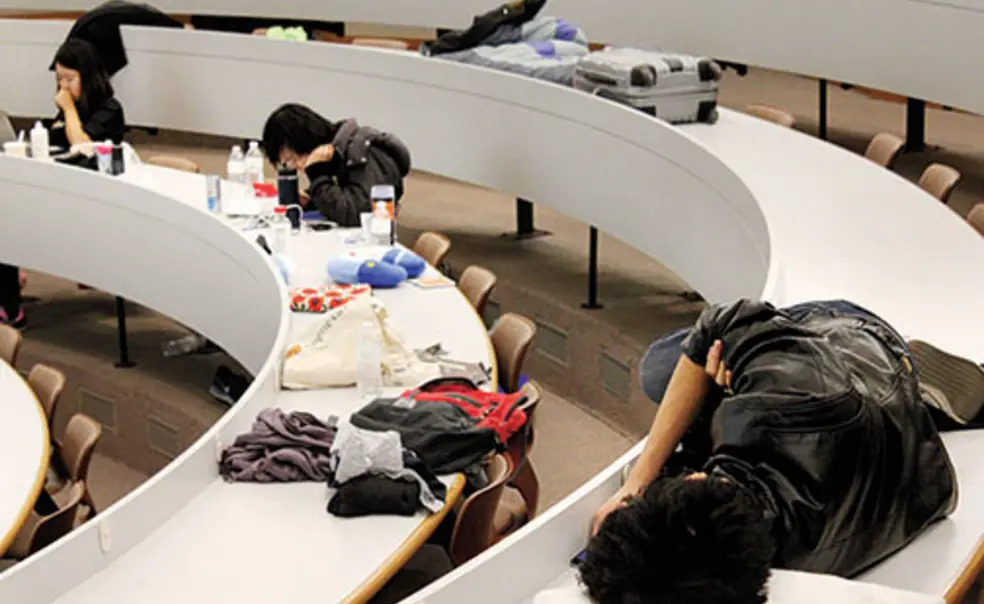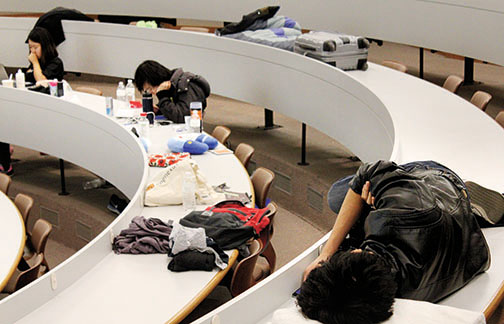Student Dispatch: Hackathon Checklist: Laptop? Check. Energy Drink? Check. Sleep? Forget it!
It’s 3 a.m. Saturday, and freshman Walker Davis, a future computer science major, carries two boxes of fresh pizza to the top floor of Sherrerd Hall. “Nobody is going to bed until this server is up and running,” he announces to a room jammed with laptops, energy-drink cans, and sleep-deprived students — all essential elements in HackPrinceton, the hackathon hosted by the Entrepreneurship Club.
In a hackathon, individuals and teams compete to create computer systems, from phone apps to nifty gadgets, in a sort of mental marathon. HackPrinceton’s 48-hour event encouraged students to develop projects — “hacks” — by providing incentives: mentors and alumni from tech giants such as Facebook and Yahoo!, more than $40,000 in prizes, and a high-energy, collaborative environment.
“We give students the time, the food, and the resources to make whatever they want,” said Stephanie He ’15, co-director of HackPrinceton. “It’s two days to get in the zone and code an idea into a reality.”
The Nov. 8–10 hackathon marked Princeton’s fourth year hosting the semiannual event and was its largest by far, with more than 500 participants from 40 colleges.
“Pumping out a program takes focus — you need to work continuously,” said Lucas Mayer ’16. “It’s very different from what we do in [computer science] class.”

Don’t underestimate the challenge of a hackathon, said Professor Edward Felten, who judged and spoke at HackPrinceton. “A lot can go wrong in 48 hours,” he said. “Often the products that are easiest to use are the ones that are hardest to build.”
“There is such little time but so much code to write,” said Pranav Gokhale ’15, a junior whose hack earned him second place. “You go through various states of lack of sleep. At one point, I woke up on my keyboard.”
The weekend culminated at noon Sunday when teams pitched their projects to the judges and each other. Among the prize winners was “What Would I Say?”, which automatically generates Facebook posts “that sound like you.” Developed by seven Princeton grad students, it quickly generated a buzz in the media.
HackPrinceton was “an unreal experience,” said Davis, half-awake on Sunday afternoon. “You get lost in the madness for two days and emerge with the feeling that now you might know how to build something great. I’ll definitely be back.” Neuroscience Institute.













No responses yet